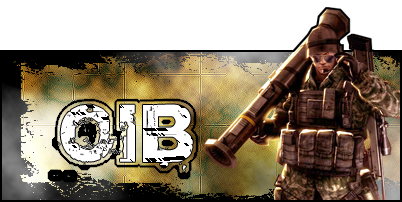| View previous topic :: View next topic |
| what should i learn first whats the easiest |
| asm duh !! |
|
0% |
[ 0 ] |
| delphi !! |
|
100% |
[ 2 ] |
|
| Total Votes : 2 |
|
| Author |
Message |
jeroendeman
Master Cheater
 Reputation: 0 Reputation: 0
Joined: 03 Jan 2007
Posts: 270
Location: netherlands
|
 Posted: Wed Jun 13, 2007 12:33 pm Post subject: what should i learn first Posted: Wed Jun 13, 2007 12:33 pm Post subject: what should i learn first |
 |
|
what should i learn first delphi or asm?
whats the best to begin ?
|
|
| Back to top |
|
 |
Kevin
Grandmaster Cheater Supreme
 Reputation: 0 Reputation: 0
Joined: 07 Mar 2007
Posts: 1139
Location: Spiderman-World
|
 Posted: Wed Jun 13, 2007 12:43 pm Post subject: Posted: Wed Jun 13, 2007 12:43 pm Post subject: |
 |
|
I startet delphi first, i dont know why.
i like delphi, simple to use, simple coding (well, after the first 3-5 programs it gets simple  ) )
|
|
| Back to top |
|
 |
oib111
I post too much
 Reputation: 0 Reputation: 0
Joined: 02 Apr 2007
Posts: 2947
Location: you wanna know why?
|
 Posted: Wed Jun 13, 2007 2:25 pm Post subject: Posted: Wed Jun 13, 2007 2:25 pm Post subject: |
 |
|
Asm is pretty easy. I mean scanning is the real pain in the ass. Once you find the address(es) it is pretty easy to code it. And once you got coding vacs down you on easy streak. It's actually understanding the concepts that might be hard. Delphi is pretty good too. It's not like C++, wasm32, and that stuff where you start from scratch, but that is the good thing about it, it makes your life easier! Delphi is pretty easy coding I guess. It really doesn't matter which you learn first. But if you were to choose between C++ and delphi it would be C++ all the way!
_________________

| 8D wrote: |
cigs dont make people high, which weed does, which causes them to do bad stuff. like killing |
|
|
| Back to top |
|
 |
RS
Newbie cheater
![]() Reputation: 0 Reputation: 0
Joined: 12 Jun 2007
Posts: 20
|
 Posted: Thu Jun 14, 2007 3:04 pm Post subject: Posted: Thu Jun 14, 2007 3:04 pm Post subject: |
 |
|
Depends what you want to do, really.
Lower levels are better for cheating since they're impossible to protect. Higher level languages provide extensive libraries -- try writing a GUI from ASM and you might be here a while.
If you're going low, spend some time on binary (/hex) and boolean arithmetic first. Knowing why the nibble 0101 equals 5 and why a max value of 255 means an eight bit representation comes in handy sometimes. AND, OR, XOR, NAND, NOR, etc will throw you for a loop when unprepared.
Oh, and there's nothing stopping you from doing both. Disassemble Delphi programs and understand both representations.
|
|
| Back to top |
|
 |
|



 Reputation: 0
Reputation: 0 Reputation: 0
Reputation: 0 Reputation: 0
Reputation: 0